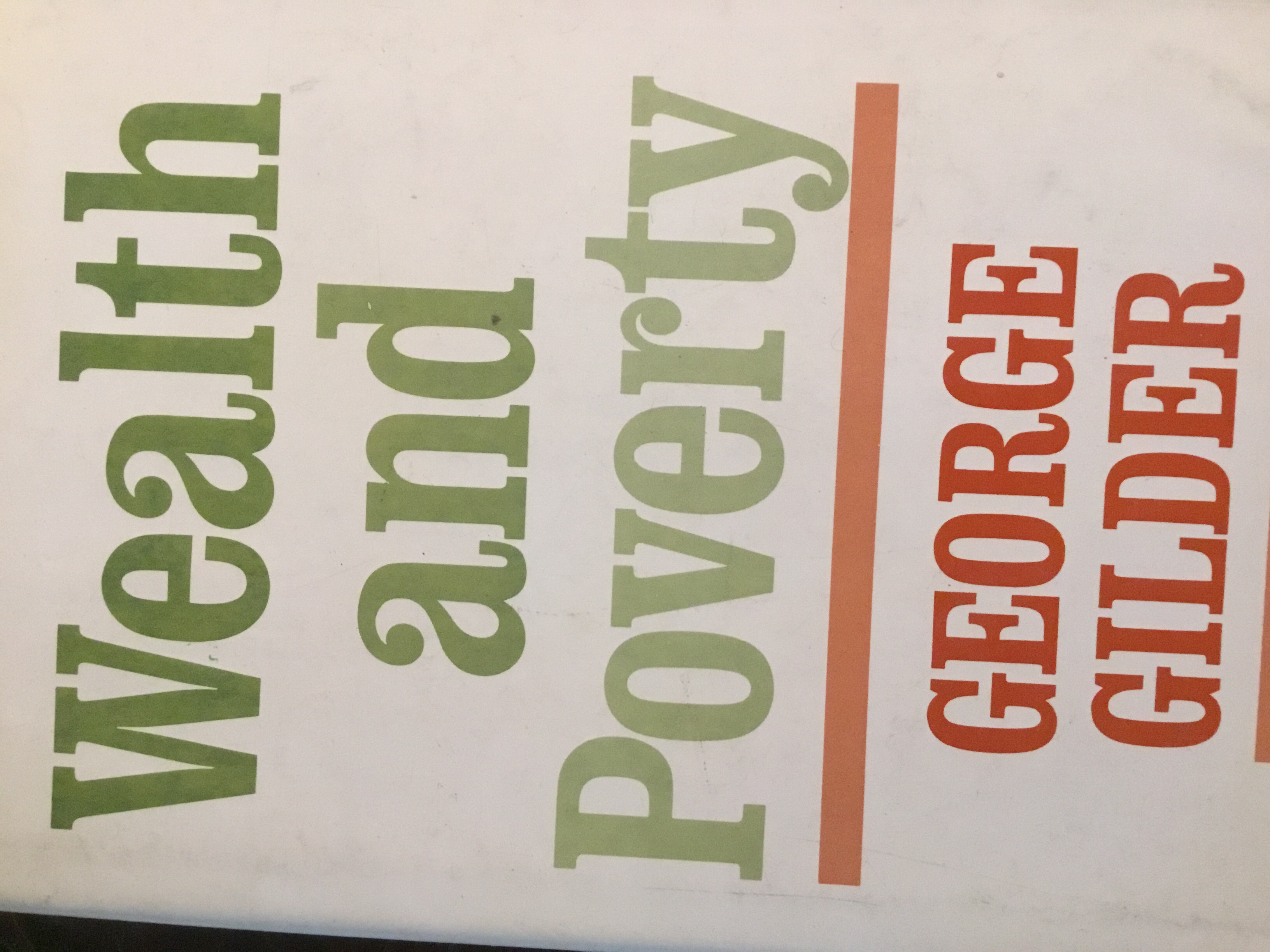What do you think?
Rate this book


365 pages, Mass Market Paperback
First published May 1, 1981





The fundamental fact in the lives of the poor in most parts of America today is that the wages of common labor are far below the benefits of TANF, Medicaid, food stamps, public housing, public defenders, leisure time, and all the other goods and services of the welfare state. As long as this situation persists, real family poverty will tend to get worse, particularly in areas congested with the poor. (171-2)The most important element in capitalism is neither capital nor physical materials, but rather information. Sclerotic government interference destroys information and the ability of entrepreneurs to learn it, and learn from it.
The greatest damage inflicted by state systems of redistribution is not the "distortion of markets, the "misallocation of resources," or the "discoordination" of producers and consumers, but the deflation of capitalist energy, the repression of entrepreneurial ideas, and the stultification of wealth. Steeply "progressive" tax rates not only destroy incentives; more important, they destroy knowledge. They take from the givers and thus prevent them from giving again, from reinvesting their winnings in the light of the new information generated by the original gift. (44)And:
The United States must overcome the materialist fallacy: the illusion that resources and capital are essentially things, which can run out, rather than products of human will and imagination, which in freedom are inexhaustible. This fallacy is one of the oldest of economic delusions, from the period of empire when men believed that wealth was land, to the period of mercantilism when they fantasized that it was gold, to the contemporary period when they suppose it is oil; and our citizens clutch at real estate and gold as well. But economists make an only slightly lesser error when they add up capital in quantities and assume that wealth consists mainly in machines and factories. Throughout history, from Venice to Hong Kong, the fastest growing countries have been the lands best endowed not with things but with free minds and private rights to property. Two of the most thriving of the world's economies lost nearly all their material capital during World War II and surged back by emancipating entrepreneurs. The materialist vision, by contrast, leads merely to newer versions of the fate of Midas. (316-16)This is a fantastic read on the fundamental principles of capitalism, wealth and poverty.